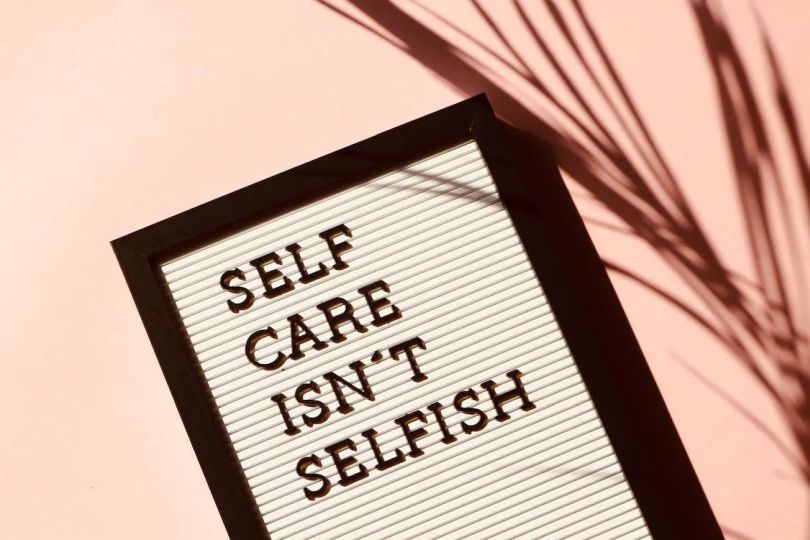Prioritizing Self-Care: Strategies for Mental and Emotional Well-being
We prioritize work, errands, and obligations over our mental and emotional well-being. However, neglecting self-care can lead to burnout, stress, and even physical health problems. In this blog post, we’ll explore strategies for prioritizing your mental and emotional well-being through seeking professional help, practicing mindfulness and relaxation techniques, incorporating healthy habits into your daily routine, setting boundaries, and being self-compassionate towards yourself while maintaining social connections with loved ones or friends; engaging in activities that spark joy is also essential!

Seeking Professional Help
It’s important to remember that seeking help doesn’t mean that you’re weak or incapable of handling things on your own. Mental health professionals can provide guidance, support, and resources to help you navigate challenging situations. So, whether you are looking for alcohol rehab in Sydney or you are looking for CBT in Hobart, it’s essential to find someone who resonates with you and creates a safe space for discussion. To do so, you can research different therapists online or ask for recommendations from friends or family members. Some people may prefer traditional therapy sessions in person, while others might feel more comfortable with virtual therapy through video chat or phone calls. It’s also crucial to communicate openly with your therapist about your needs and expectations. Together, you can develop a treatment plan that works best for you and addresses the challenges you’re facing.
Practicing Mindfulness and Relaxation
Mindfulness essentially involves being present in the moment and paying attention to your thoughts and feelings without judgment. Relaxation techniques, on the other hand, help calm the mind and body by reducing stress levels. There are several ways to practice mindfulness, such as meditation or mindful breathing exercises. These practices can help reduce anxiety, improve mood, increase focus, and enhance overall well-being. Incorporating relaxation techniques into daily routines can also be beneficial for mental health. Activities like yoga or taking a warm bath before bed can promote physical relaxation that leads to improved sleep quality. Taking breaks throughout the day to pause, breathe deeply or stretch is another way of practicing mindfulness in everyday life. This helps break up periods of stress or tension while allowing you to refocus your energy toward more positive thoughts.
Incorporating Daily Healthy Habits
Start with small changes such as drinking more water or taking short walks throughout the day. Gradually increase these habits over time as they become part of your routine. Incorporate exercise into your daily life in ways that are enjoyable and sustainable for you. In addition to physical health, it’s important to prioritize mental health through activities such as journaling or meditation. These practices allow you to reflect on your thoughts and emotions while promoting relaxation and stress reduction. Sleep is also crucial for overall well-being. Create a bedtime routine and aim for 7-9 hours of sleep per night. Limit screen time before bed and create a calming environment in your bedroom. Nutrition plays a highly important role in the well-being of our mental and physical health but also ensures that we have adequate energy levels throughout the day. Focus on consuming nutrient-dense foods while limiting processed foods high in sugar, salt, and unhealthy fats.

Setting Boundaries and Being Self-Compassionate
Setting boundaries means learning to say no, establishing limits on what you’re willing to do or tolerate, and protecting your time and energy from unnecessary stressors. Being self-compassionate involves treating yourself with kindness, understanding that everyone makes mistakes, and giving yourself permission to take care of your needs. Setting boundaries can be challenging because it may require saying no to people or situations that you’ve always said yes to in the past. But remember that setting boundaries is not about being selfish; it’s about valuing yourself enough to protect your physical and emotional health. It’s okay if others don’t agree with your choices – ultimately, you know what’s best for you. Being self-compassionate involves recognizing when you’re struggling or feeling overwhelmed, instead of beating yourself up for not being perfect. Practicing self-compassion can help reduce negative thoughts and feelings of shame or guilt. Remember that taking care of yourself is important – just like how we prioritize caring for loved ones.
Maintaining Social Connections
Social connections are highly important for our mental health, even at times when we don’t really feel like it. Luckily, with the advancements in technology, social connections can now be maintained remotely. Meaning that platforms like Zoom and FaceTime allow us to connect with loved ones despite physical distancing restrictions. Making time for virtual hangouts or phone calls with friends and family can help us feel less isolated. Another way to maintain social connection is by participating in online communities centered around shared interests or hobbies. Social media platforms like Facebook have groups dedicated to various topics such as cooking, fitness, or book clubs where people can connect virtually. Volunteering is another great way of maintaining social connections while giving back to the community. It allows individuals to meet new people who share similar values while making a positive impact on others’ lives.
Prioritizing self-care is essential for maintaining good mental and emotional health. By seeking professional help, practicing mindfulness and relaxation, incorporating daily healthy habits, setting boundaries and being self-compassionate, maintaining social connections, and engaging in activities that spark joy and happiness, we can improve our overall well-being. Remember that taking care of yourself isn’t selfish; it’s necessary to be the best version of yourself. So make self-care a priority in your life – you deserve it!
